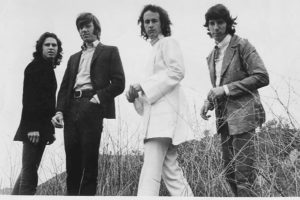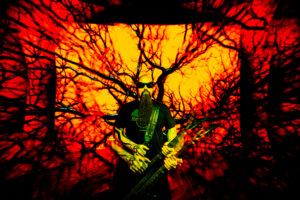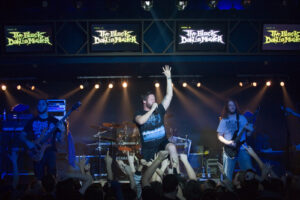
Feature Photo: Debby Wong / Shutterstock.com
Our 25 Most Distinctive Opening Harmonica Solos In Rock Music presents a list of songs fueled by excellent opening harmonica riffs. This is not a list of the best harmonica solos in rock but rather a list of opening harmonica solos that occur before the vocals. It would have been easy to fill this list with Bob Dylan songs or classic blues numbers, but that would have been pretty boring. We added a little Dyaln but held back in order to prensent more of the rock side of harmonica playing.
25 – The River – Bruce Springsteen
“The River” is the title track from Bruce Springsteen’s 1980 double album The River. Springsteen wrote the song and provided vocals and guitar, exploring themes of despair juxtaposed against hope. The musicians backing him included members of the E Street Band: Clarence Clemons on saxophone, Danny Federici on organ, Roy Bittan on piano, Garry Tallent on bass, and Max Weinberg on drums. The album, produced by Bruce Springsteen, Jon Landau, and Steven Van Zandt, was critically acclaimed and reached number one on the Billboard 200 chart.
24 – If You Wanna Get To Heaven – Ozark Mountain Daredevils
“If You Wanna Get to Heaven” is a track from the Ozark Mountain Daredevils’ 1973 self-titled debut album. Written by band members Steve Cash and John Dillon, the song features harmonica played by Steve Cash. The track stands out for its blend of country rock and Southern rock styles. It became the band’s first major hit, reaching number 25 on the Billboard Hot 100 chart. The album was produced by Glyn Johns and also featured musicians such as Randle Chowning on guitar and Buddy Brayfield on keyboards.
23 – Juke – Little Walter
“Juke” is a landmark blues harmonica instrumental by Little Walter, released in 1952. Little Walter both wrote the piece and performed it, showcasing his virtuoso harmonica skills. The track was recorded with Muddy Waters’ band, which included Muddy Waters on guitar, Jimmy Rogers on second guitar, Elga Edmonds on drums, and Otis Spann on piano. Produced by Leonard Chess, “Juke” became a significant hit, reaching number one on the Billboard R&B chart and marking Little Walter as one of the most influential blues harmonica players of all time.
22 – School – Supertramp
“School” is a track from Supertramp’s 1974 album Crime of the Century. The song was written by band members Roger Hodgson and Rick Davies, with Hodgson handling vocals and piano and Davies on harmonica and keyboards. Other musicians involved in the recording included John Helliwell on saxophone, Dougie Thomson on bass, and Bob Siebenberg on drums. The album was produced by Ken Scott and Supertramp and is noted for its conceptual and progressive rock elements. Although “School” did not chart as a single, the album itself was a commercial success, reaching number 4 on the UK Albums Chart and number 38 on the US Billboard 200 chart.
# 21 – On The Road Again – Canned Heat
“On The Road Again” is a standout track from Canned Heat’s 1968 album Boogie with Canned Heat. The song was adapted by Alan Wilson who also provided vocals and harmonica, with Bob Hite, Henry Vestine on guitar, Larry Taylor on bass, and Adolfo de la Parra on drums. The song was a major hit, reaching number 16 on the Billboard Hot 100 chart in the United States.
20 – I Should Have Known Better – The Beatles
“I Should Have Known Better” was featured on The Beatles’ 1964 soundtrack album A Hard Day’s Night. The song was written by John Lennon and credited to the Lennon-McCartney partnership. John Lennon performed the harmonica parts as well as vocals, Paul McCartney on bass, George Harrison on lead guitar, and Ringo Starr on drums. The song was part of the album that topped charts globally, including the Billboard 200 in the USA.
19 – Sweet Maree – The Steve Miller Band
“Sweet Maree” appears on Steve Miller Band’s 1976 album Fly Like an Eagle. Steve Miller wrote the song and performed vocals and guitar, with Norton Buffalo playing the harmonica. Other musicians involved were Lonnie Turner on bass and Gary Mallaber on drums. The album was produced by Steve Miller and was a commercial success, reaching number 3 on the Billboard 200 chart.
18 – Fingertips, Pt. 2 – Stevie Wonder
“Fingertips, Pt. 2” is a live recording from Stevie Wonder’s 1963 album Recorded Live: The 12 Year Old Genius. The song features Wonder on vocals and harmonica, and it became his first hit, topping the US Billboard Hot 100 chart. This track is notable for its spontaneous and energetic performance, capturing a young Wonder at the start of his prolific career.
17 – Life Is A Highway – Tom Cochrane
“Life Is a Highway” is from Tom Cochrane’s 1991 album Mad Mad World. Cochrane wrote the song and performed vocals and guitar. Additional musicians on the track include Ken Greer on guitars, John Webster on keyboards, and Jeff Jones on bass. The song was a significant hit, reaching number six on the Billboard Hot 100 chart in the United States.
16 – You Don’t Know How It Feels – Tom Petty & The Heartbreakers
“You Don’t Know How It Feels” is a song from Tom Petty’s 1994 album Wildflowers. Tom Petty wrote the song and performed vocals and harmonica. The other musicians featured include Mike Campbell on guitar, Benmont Tench on keyboards, Howie Epstein on bass, and Steve Ferrone on drums. The album was produced by Rick Rubin, Tom Petty, and Mike Campbell. The song reached number 13 on the US Billboard Hot 100 chart.
15 – Work Song – The Paul Butterfield Blues Band
“Work Song” appears on The Paul Butterfield Blues Band’s 1966 album East-West. The song is a blues standard, though their instrumental version was arranged by members of the band. Musicians on the track include Paul Butterfield on harmonica and vocals, Mike Bloomfield and Elvin Bishop on guitars, Mark Naftalin on keyboards, Jerome Arnold on bass, and Billy Davenport on drums. The album was produced by Paul Rothchild.
14 – Room to Move – John Mayall
“Room to Move” is featured on John Mayall’s 1970 live album The Turning Point. John Mayall wrote the song and performed it on vocals and harmonica. The lineup for this track was unique in that it used no drums or electric guitars, focusing instead on acoustic instruments. The musicians included Mayall on vocals, harmonica, and guitar, Jon Mark on acoustic guitar, Johnny Almond on flutes and saxophones, and Steve Thompson on bass.
13 – Run Around – Blues Traveler
“Run Around” is from Blues Traveler’s 1994 album Four. The song was written by lead vocalist and harmonica player John Popper. Other band members featured on the track are Chan Kinchla on guitar, Bobby Sheehan on bass, and Brendan Hill on drums. The song was produced by Michael Barbiero and Steve Thompson. “Run Around” won a Grammy for Best Rock Performance by a Duo or Group with Vocal and reached number 8 on the US Billboard Hot 100 chart.
12 – The Wizard – Black Sabbath
“The Wizard” is a track from Black Sabbath’s 1970 album Black Sabbath. The song was written by all four members of the band: Ozzy Osbourne, Tony Iommi, Geezer Butler, and Bill Ward. Osbourne provided vocals and harmonica, Iommi on guitar, Butler on bass, and Ward on drums. The album was produced by Rodger Bain.



































Great List – Not a bad tune amongst them.
There is something about the harmonica, that makes the songs they are in, even more memorable.
Love the muscular opening harp on “The Promised Land”, especially on the live version from “Live 1975-1985”
One addition/substitution would be the honkin’ “Train Train” from Blackfoot, led by Rickey Medlocke of Lynyrd Skynyrd – Crank It Up.